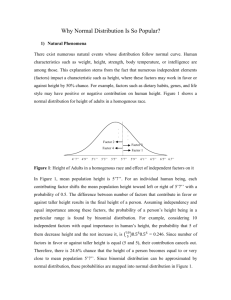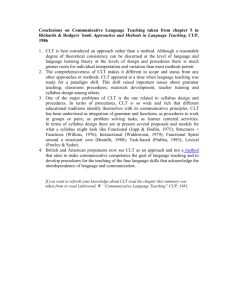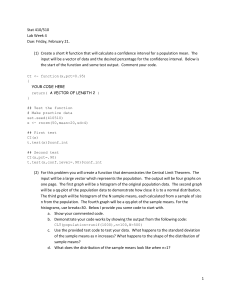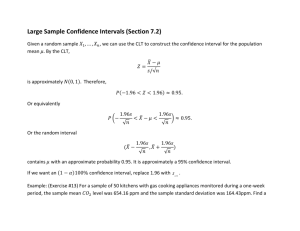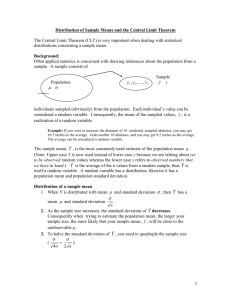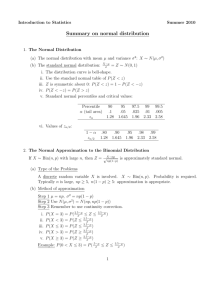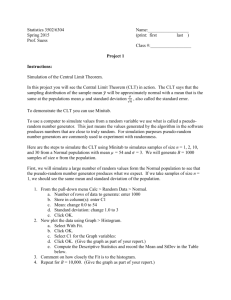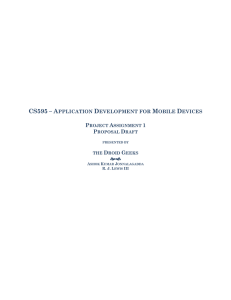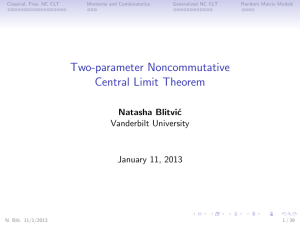Central Limit Theorem
advertisement
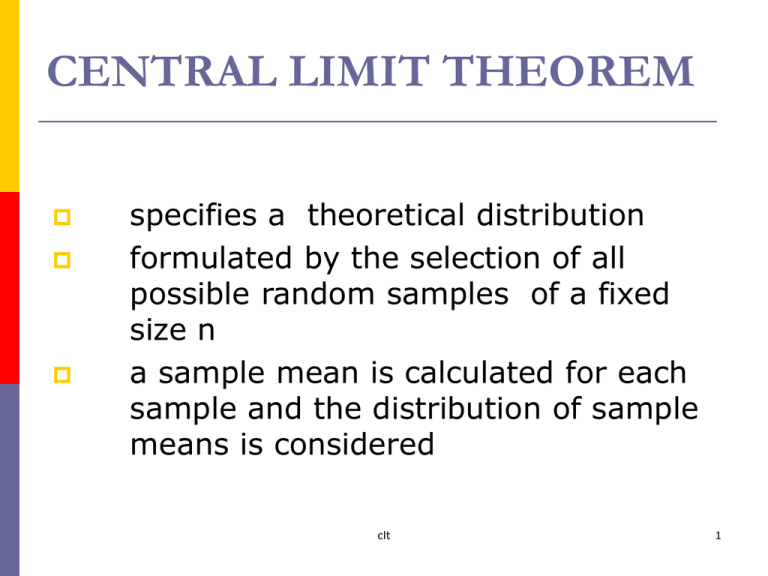
CENTRAL LIMIT THEOREM specifies a theoretical distribution formulated by the selection of all possible random samples of a fixed size n a sample mean is calculated for each sample and the distribution of sample means is considered clt 1 SAMPLING DISTRIBUTION OF THE MEAN The mean of the sample means is equal to the mean of the population from which the samples were drawn. The variance of the distribution is s divided by the square root of n. (the standard error.) clt 2 STANDARD ERROR Standard Deviation of the Sampling Distribution of Means sx = s/ \/n clt 3 How Large is Large? If the sample is normal, then the sampling distribution of x will also be normal, no matter what the sample size. When the sample population is approximately symmetric, the distribution becomes approximately normal for relatively small values of n. When the sample population is skewed, the sample size must be at least 30 before the sampling distribution of x becomes approximately normal. clt 4 EXAMPLE A certain brand of tires has a mean life of 25,000 miles with a standard deviation of 1600 miles. What is the probability that the mean life of 64 tires is less than 24,600 miles? clt 5 Example continued The sampling distribution of the means has a mean of 25,000 miles (the population mean) m = 25000 mi. and a standard deviation (i.e.. standard error) of: 1600/8 = 200 clt 6 Example continued Convert 24,600 mi. to a z-score and use the normal table to determine the required probability. z = (24600-25000)/200 = -2 P(z< -2) = 0.0228 or 2.28% of the sample means will be less than 24,600 mi. clt 7 ESTIMATION OF POPULATION VALUES Point Estimates Interval Estimates clt 8 CONFIDENCE INTERVAL ESTIMATES for LARGE SAMPLES The sample has been randomly selected The population standard deviation is known or the sample size is at least 25. clt 9 Confidence Interval Estimate of the Population Mean s s Xz m Xz n n -X: sample mean s: sample standard deviation n: sample size clt 10 EXAMPLE Estimate, with 95% confidence, the lifetime of nine volt batteries using a randomly selected sample where: -X = 49 hours s = 4 hours n = 36 clt 11 EXAMPLE continued Lower Limit: 49 - (1.96)(4/6) 49 - (1.3) = 47.7 hrs Upper Limit: 49 + (1.96)(4/6) 49 + (1.3) = 50.3 hrs We are 95% confident that the mean lifetime of the population of batteries is between 47.7 and 50.3 hours. clt 12 CONFIDENCE BOUNDS Provides a upper or lower bound for the population mean. To find a 90% confidence bound, use the z value for a 80% CI estimate. clt 13 Example The specifications for a certain kind of ribbon call for a mean breaking strength of 180 lbs. If five pieces of the ribbon have a mean breaking strength of 169.5 lbs with a standard deviation of 5.7 lbs, test to see if the ribbon meets specifications. Find a 95% confidence interval estimate for the mean breaking strength. clt 14
